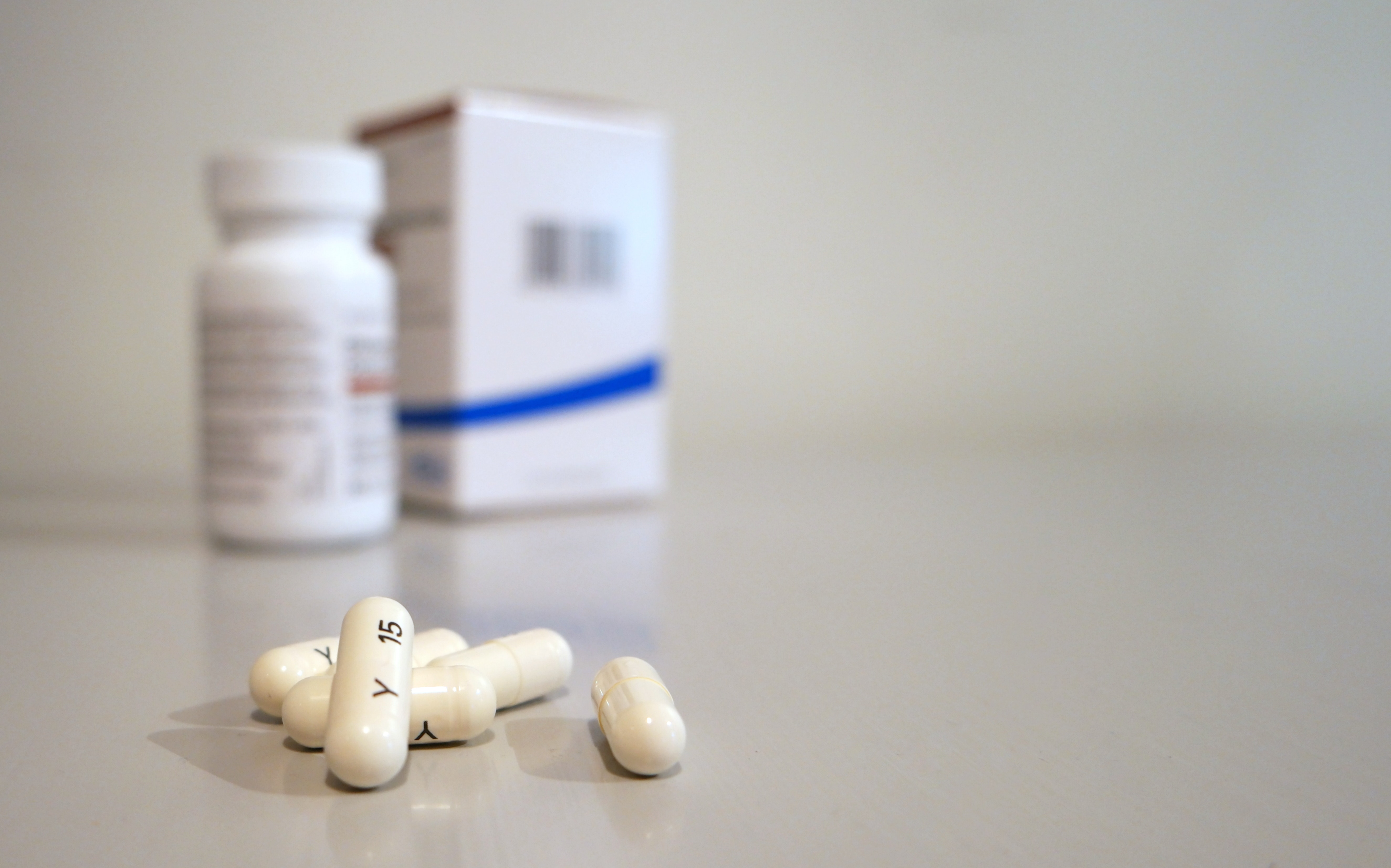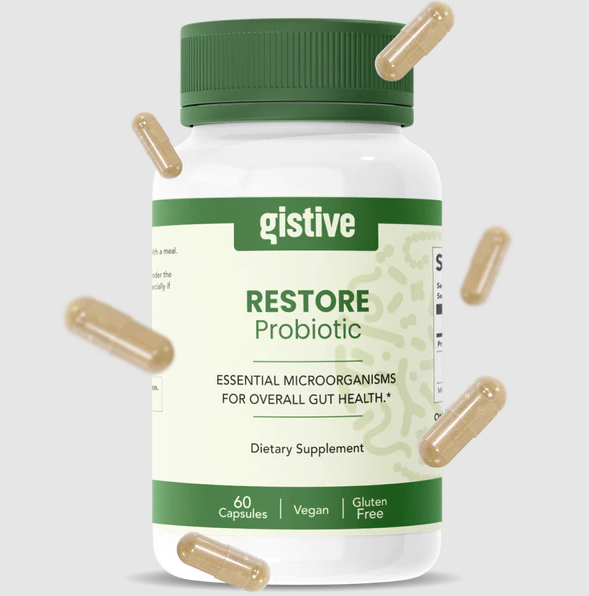The probiotic supplements industry is blooming more than ever, and we can thank science and persistent gut health problems for that.
From curing Irritable Bowel Syndrome and establishing a healthy gut to treating acute infectious diarrhea, probiotic supplements suddenly have many use cases paved out for them, and we're all for it.
However, a question that everyone always asks regarding medicine remains:
how long does it take for them to work?
What's the minimum number of days before you start feeling the change in your digestive health?
To put it bluntly, it's a varied experience for everyone.
You and your friend might start taking probiotics on the same day, and the time it takes for probiotic supplementation to work might differ for each of you.
It might take 2-3 weeks for someone and as short as 1-3 days for someone else.
Confusing, right? Well, not so much when you understand what's going behind the curtains, and that's precisely why we've created this guide.
Keep on reading as we walk you through the complex world of probiotics. See you at the end!
Table of Contents
- What Are Probiotics?
- But How Do They Work?
- What Can Probiotics Do For Me?
- Boost Your Immune System
- Dilute Symptoms Of Digestive Disorder
- Probiotics Help In Achieving A Healthy Weight
- Our Top Picks - Premium Probiotic Supplements For Results
- Ways To Monitor Probiotic Effectiveness
- How Long Does It Take For Probiotics To Work? (Key Takeaway)
- Probiotics Didn't Work For Me - What Do I Do?
- Bottom Line
What Are Probiotics?

Probiotic supplements aren't some new drug that's rolled out and getting that initial recognition - They're already in your gut. Also termed gut bacteria, these cheeky live organisms play an essential role in a lot of different things, which include:
-
Replenish the good bacteria for a healthy gut microbiome
-
Establish better digestive health by preventing disorders
-
Lower stress-induced inflammation in the gut
-
Boost your immune system
And that's just the tip of the iceberg, at least for now. Hundreds of clinical research dive deeper into how these probiotic supplements can help treat digestive issues like IBS, IBD, and more, with more and more health benefits of these probiotic products being unveiled.
But How Do They Work?
Probiotics work differently than most of your over-the-counter medicine, making them even more fascinating and compelling.
Where most medicines focus on targeting the symptoms of a disease directly, probiotics target your gut flora and have the sole purpose of adding more beneficial bacteria to overcome the damages that are being done by the harmful bacteria, the two of which collectively make up your gut microbiome.
When you're adding more helpful bacteria to fend off the wrong side of your gut, it aids your body in countering a boatload of problems, which include stress-based inflammation, infections in the gut, and enabling more frequent bowel movements.
What Can Probiotics Do For Me?
We've stressed the importance of probiotics on our website from time to time, from making an exhaustive list of the best probiotics out there to helpful guides to help you regain good gut health, but if you've missed out on that party, we're not hesitant to tell you that again.
All-in-all, a good, appropriate probiotic product can help you achieve a lot of different things, but an excerpt of their most important functions is discussed as follows:
Boost Your Immune System
If you fall prey to every seasonal disease, there's a good reason your immune system is in shambles, and the probiotics help with that.
A growing list of studies has explained how probiotic bacteria increase and regulate immunomodulatory functions, allowing your body to better fight against uninvited guests prone to enter your body.
Though much more research is needed on the above theory, researchers have connected the dots between the probiotic strain Lactobacillus crispatus and reduced UTI (Urinary Tract Infection) in women by a massive number of 50%.
Dilute Symptoms Of Digestive Disorder
The gut is a very sensitive part of the body, and minimal changes in routine and mental health can trigger inflammation and put you in a bad digestive health phase.
One of the main reasons for the increased reputation of probiotic bacteria was their effectiveness against inflammatory disorders like IBS and IBD, with people getting better results in a matter of days after taking probiotics.
Probiotics Help In Achieving A Healthy Weight
Probiotics and dietary supplements like fermented foods can help you establish a robust gut flora; they're great if you want a healthy weight.
One way probiotics help lose excess weight is by preventing fat absorption in the intestine, which can then be pushed out of the body by excretion. Popular probiotic strains, such as Lactobacillus, also help in enriching the gut microbiome, amplifying your gut health and removing belly fat.
Our Top Picks - Premium Probiotic Supplements For Results
Knowing which probiotics work best for you is half the job. The road to achieving the perfect gut health means paying your due diligence, researching suitable probiotic product options, and filtering out what's best for you.
Though, to make it easier, we already have an exhaustive guide on a diverse list of the best probiotics for you to check out, available here.
Still, if you're short on time, here are two handpicked probiotic supplements that will get the ball running for you, which can and will prove to be quite beneficial for you.
IBSupport By Gistive
IBS is a growing concern in the digestive disorder world that affects roughly 10% of the population, causing issues like constipation, persistent abdominal pain, and more. IBSupport by Gistive is produced solely for this problem, containing the strain Lactobacillus acidophilus to fend off IBS symptoms.
In addition, this probiotic is mixed with seven different superfoods that enable healthy bacteria to replenish and overcome harmful bacteria, which proves beneficial for a healthy gut in the long run.
Restore Probiotic

Restore Probiotic comes loaded with 7 different probiotic strains, with over 5.7 billion colony forming units that allow you to fully replenish your gut microbiome and get your health back on track.
Some of the most critical strains in this probiotic supplementation include, but are not limited to, Lactobacillus rhamnosus, Bifidobacterium longum, and Lactobacillus acidophilus.
The product comes in a gel-forming capsule, with delivery action all the more penetrable and viable to reach the core parts of the digestive system. As we always say, a probiotic is only as good as its delivery mechanism, which goes for medicines beyond just probiotics too.
Ways To Monitor Probiotic Effectiveness
For first-timers, knowing if the probiotic you're taking is working can be tricky and frustrating, especially if you don't know what changes or progress points to focus on, though if you've been taking probiotics for some time now, it's vital to revise some strategies to monitor their effectiveness.

So let's start right there. If you're looking for ways to know that your probiotics are working for you, here's what you need to do.
Map Out Your Symptoms
For you to start taking probiotics, you must be having some problems. It could be persistent bloating, depression, or an innate struggle with IBS-related problems.
Whatever they are and how many there are, an excellent place to start is to write these symptoms down to the last detail in a diary or an app.
Writing the severity of your symptoms and what they will enable you to easily compare a baseline to your probiotic progress, allowing you to decide whether the probiotics work for you.
Revaluate Where Your Gut Stands
To be clear, re-evaluating does not mean comparing your initial symptoms against an ideal case, where all your gut problems vanish entirely into oblivion. We've often seen people do this, and having unrealistic explanations can lead to long-term detriments and make it even harder to establish a healthy body.
Instead, lightly compare your initial symptom conditions to your current stages after every 3-4 weeks, and ask yourself some questions.
Have your symptoms diluted or worsened? Do you feel better than before? Do you feel some improvements in digestion?
Based on the answers to the questions above, you can evaluate the effectiveness of your probiotics periodically and see whether they're working out for you. Remember, it's a marathon, not a sprint race, so be patient, and keep yourself in the loop.
Mark Your Peaks
It's most likely that after you've been on probiotics for a good few weeks, you'll start to feel better and notice improvements in your body and dilution in your digestive issues.
However, it's important to note the peak of your health after you start taking probiotics. Soon as you think you've been better off, pat yourself on the back, mark it down, and keep your probiotic routine consistent.
This is especially crucial for the next step, where you can wean down your doses and eventually reach a point where you don't have to use these products anymore.
However, even if you don't, it's important to keep a diary of these results with you and see how far you've come, how well you're doing, and what the next step is at every point of your probiotic journey.
Keep Minimizing Your Dose
Though this step is more optional, we've seen professionals often recommend doing it, and it's trying to get off probiotics and letting your body naturally develop immunity to digestive disorders.
Stopping probiotic usage can also provide a clear picture of whether or not your probiotics are working and how dependent your disorders are on them.
Though the key word here is "gradual", which means you don't have to completely cut your supply instantly, slowly go down that path.
We recommend having it every 3-4 weeks and seeing how your body reacts to this change. If you cut your supply in half once, and your gut feels well with it, you can do the same again after 3-4 weeks and keep on doing it until you're entirely free of them.
However, as we mentioned before, this step is optional. If you notice that your symptoms are coming back after you decrease your probiotics, it's completely okay to keep using them!
How Long Does It Take For Probiotics To Work? (Key Takeaway)
For most people, the average time it takes for probiotics to work is 2-3 weeks, which is the average time for probiotics to make their way to your gut, overpower the harmful bacteria, and replenish the gut microbiome.
Though it's important to know that all of the above-mentioned steps are a part of the process, and like all processes, it's time-consuming.
2-3 weeks isn't a number set in stone, and it can certainly take more or less time than that for probiotics to start making changes in your body.
An even easier way to explain the whole process is to view it as a fight between two groups, which, in this case, are the good and bad bacteria in your gut.
The goal is to win the fight, and if you're going in with a small number of people against an innumerable set of enemies, there's a high chance you'll lose that fight. It will take its toll on your immune system, gut health, and overall digestive system.
It would help if you gave your inner body a consistently good supply of troops, which is the probiotic supplement. Taking a single probiotic won't do anything, and the only key here to focus on is consistency and routine.
Probiotics Didn't Work For Me - What Do I Do?
Before you banish your probiotic supplement for not working, it's essential to know whether they're working for you, and our previous guide explains that in detail, available here.

There are a lot of metrics that we talk about in the mentioned guide, which includes signs that include, but are not limited to,
-
Improved immune stimulation
-
Better moods
-
Balanced cravings for sugar
-
Improved skin health
We recommend taking a good read at it, but coming back, if you're convinced that your "high-quality probiotic supplement" isn't working for you, there's no need to worry.
While this can mean many different things, depending on the supplement or probiotic foods you're taking, some people have an in-built immunity to certain medications or have a stubborn gut that requires a more professional, invasive approach to getting it on track.
We recommend talking to your gastroenterologist, who can recommend gut therapies to better understand your gut problems.
Bottom Line
Having realistic expectations, especially in the case of probiotics, is more than important. Though most probiotics take 2-4 weeks to kick in, it's essential to realize that everybody is built differently, with the severity of symptoms being varied in every single one of us.
However, we've covered a wide range of topics above to give you a rough idea of what to expect, how to monitor its effects, and what to do if your probiotics aren't working.

